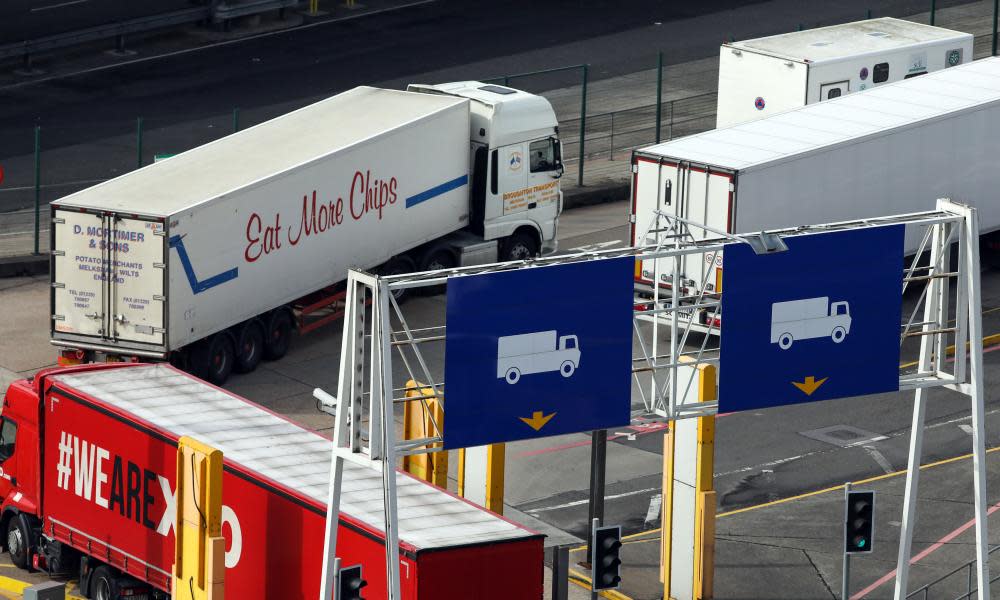Safety controls on food imports at risk from no-deal Brexit, says report

Ministers are considering plans to suspend food safety controls in the event of a no-deal Brexit to prevent perishable goods being delayed at the border, a report has claimed.
The academics who wrote the report said they were told by a government adviser that this option was being considered as something that might be necessary should delays emerge. But EU countries might then retaliate by blocking exports from the UK because of its “cavalier” approach to safety standards, the report added.
The claim is contained in a briefing from the Food Research Collaboration, an academic group specialising in food policy, called Feeding Britain: Food Security After Brexit.
In the section entitled Preparing for a no-deal food Brexit, the report said it believes the UK will need to maintain “open and unhindered borders” with the EU for food. It added: “The prime minister told the cabinet in July to prepare for no-deal. She is right but it is already happening in Defra [Department for Environment, Food and Rural Affairs] in some worrying directions.
“In recent months, we have learned from a senior government adviser that plans are being prepared to ‘suspend food controls’ if there are any delays to imports of perishable foods at our borders. We learned too that other policy commentators had been told the same by senior Defra personnel. One government adviser even informed us that the plans were being devised ‘to avoid parliamentary scrutiny’.
“Senior industry people have told us in no uncertain terms that this would be folly and must be avoided, not least because it would threaten exports from the UK to the EU.
“If the UK were to suspend food safety controls, others might block exports from a country taking such a cavalier approach to public health. It would go completely against all the protestations of commitment to high consumer and health standards. Yet this appears to be what Defra envisages.”
The report said there have already been “several hints” from ministers to endorse such a proposal. It continued: “If border checks rose to four minutes, there would be 20-mile or so (possibly even 29-mile) lorry tailbacks within a day, hence the fallback, we presume, of suspending food controls to allow all traffic to be waved through. This is not ‘taking back control’, it is abandoning it.”
City University professor Tim Lang, a co-author of the report, said: “One could argue that this is sensible emergency planning but it is also risky.”
The report was also produced by University of Sussex professor Erik Millstone, Tony Lewis, of the Chartered Institute of Environmental Health, and Cardiff University professor Terry Marsden.
Asked to comment on the report, a Defra spokesperson said that food safety controls would not be relaxed, regardless of what the academics had been told.
“The government will not suspend food safety controls or weaken our high standards, even in the event of no deal.”
A government source also claimed that ministers were “increasingly confident” that there would be a deal.

 Yahoo News
Yahoo News 
